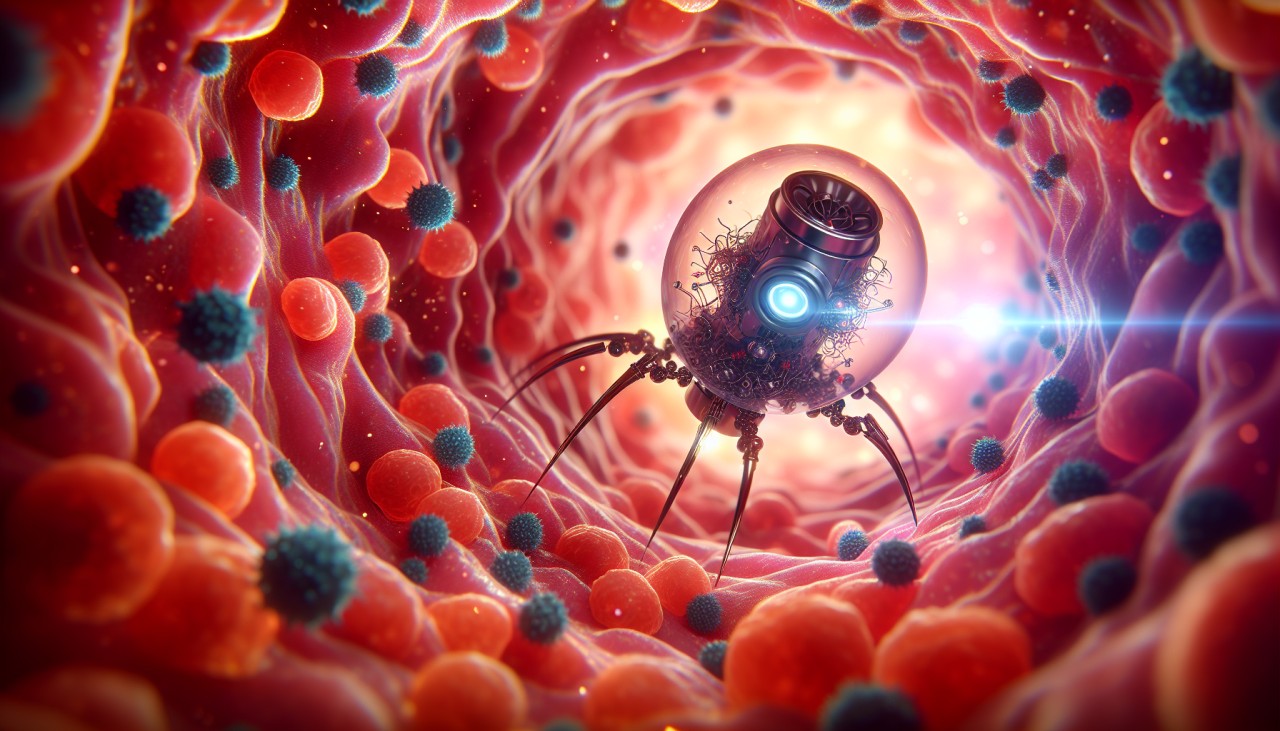Nanobots, minuscule machines engineered at the nanoscale, are making significant strides in the medical field, particularly in oncology. These tiny devices can be programmed to identify and target cancer cells with remarkable precision, minimizing damage to healthy tissues. For instance, AI-powered nanobots can detect specific biomarkers on cancer cells, allowing for the direct delivery of chemotherapy drugs to malignant tissues. This targeted approach not only enhances the efficacy of the treatment but also reduces the adverse side effects commonly associated with conventional therapies. regentstudies.com
Moreover, the integration of artificial intelligence and reinforcement learning into nanobot design is further advancing cancer treatment. These intelligent nanorobots can autonomously navigate complex biological environments, detect cancer cells, and deliver therapeutic agents directly to the tumor site. This capability holds promise for personalized medicine, offering treatments tailored to the unique characteristics of an individual's cancer, thereby improving outcomes and minimizing systemic side effects. arxiv.org
Key Takeaways
- Nanobots can precisely target and eliminate cancer cells, reducing damage to healthy tissues.
- AI-powered nanobots enhance the efficacy of chemotherapy by delivering drugs directly to malignant tissues.
- Integration of AI and reinforcement learning enables nanorobots to autonomously navigate and treat tumors.
- Intelligent nanorobots hold promise for personalized cancer treatments tailored to individual patient profiles.
- Advancements in nanobot technology may lead to reduced side effects compared to traditional cancer therapies.
